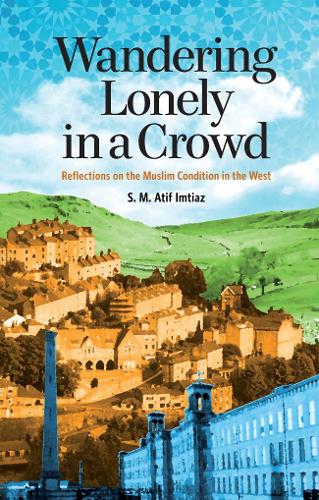
Wandering Lonely in a Crowd: Reflections on the Muslim Condition in the West
(Paperback)
Publishing Details
Wandering Lonely in a Crowd: Reflections on the Muslim Condition in the West
By (Author) S.M. Atif Imtiaz
Kube Publishing Ltd
Kube Publishing Ltd
28th June 2011
United Kingdom
Classifications
General
Non Fiction
305.6970941
Physical Properties
Paperback
164
Width 139mm, Height 215mm
240g
Description
"S.M. Atif Imtiaz's desire for genuine discussion about Islam in Britain is striking and compelling" -The Telegraph
"Imtiaz's wisdom is offered in a simple, direct, accessible prose [and] speaks to all concerned with the place of Muslims in the West."Tariq Modood, professor, University of Bristol
"A compelling mix of intellectualism and vivid reportage."Madeleine Bunting, associate editor and columnist, Guardian
"Imtiaz is telling us to wake up to some tough global realities. Islam matters, more than anything else. Not just because it offers the most compelling and widely-followed alternative to turbo-capitalism, but because it does so on the basis of monotheism, history's most powerful idea. In these essays, spanning British and global Islamic issues of burning moment, Imtiaz reminds us that God has not gone away."Abdal Hakim Murad, dean, Cambridge Muslim College
Wandering Lonely in a Crowd: Reflections on the Muslim Condition in the West is a timely collection of essays, articles, lectures, and short stories that reflect on the years between 9/11 and Barack Obama. They cover the themes of integration, community cohesion, terrorism, radicalization, cultural difference, multiculturalism, identity politics, and liberalism. Beginning with a raw and unedited response to the terrorist attacks of 9/11 and ending with Obama's election, S.M. Atif Imtiaz covers the numerous facets of the debate that surrounds Western Muslims today. The book sets out a narrative for these years and a response that argues that Western Muslims should move away from identity politics towards Islamic humanism.
S.M. Atif Imtiaz holds a doctorate in social psychology, is a longstanding community activist, and has worked in equalities for the Bradford and Airedale Primary Care Trust in England.
Reviews
From student radicalism in the nineties to Muslims at the centre of a national security policy in the 2000s, Atif Imtiaz's generation has had to confront issues of identity, belonging, loyalty, commitment and their faith in much harsher, more polarised terms than most. A careful thinker, drawing inspiration from many different sources including, of course, his Islamic faith, Imtiaz is one of those who is exploring and articulating what a twenty first Western expression of his religion might mean." --Madeleine Bunting Imtiaz is telling us to wake up to some tough global realities. Islam matters, more than anything else. Not just because it offers the most compelling and widely-followed alternative to turbo-capitalism, but because it does so on the basis of monotheism, history's most powerful idea. In these essays, spanning British and global Islamic issues of burning moment, Imtiaz reminds us that God has not gone away." - Abdal Hakim Murad, Dean, Cambridge Muslim College Atif Imtiaz's collection of talks and essays are theoretically informed, practically directed at improving the well-being of Muslims through their own learning and action as well as through the benefits of fully becoming part of British society. His wisdom is offered in a simple, direct, accessible prose, presented sometimes in the form of a talk, sometimes as conversational biography. His combination of experience and social concern makes him a thoughtful British Muslim figure who speaks to all concerned with the place of Muslims in the West." - Professor Tariq Modood, University of Bristol and author of Multiculturalism: A Civic Idea (2007)
Author Bio
S.M. Atif Imtiaz: Atif Imtiaz has been involved with Islamic organizations since the late 1980's. He graduated from the City University in psychology and then completed a doctoral thesis at the London School of Economics in social psychology. He has studied Muslim identity politics and has been actively involved in grassroots initiatives. He was an advisor to the Government after the 7/7 terror attacks and continues to advise politicians and policy makers. He also runs a blog called Bradford Muslim.
